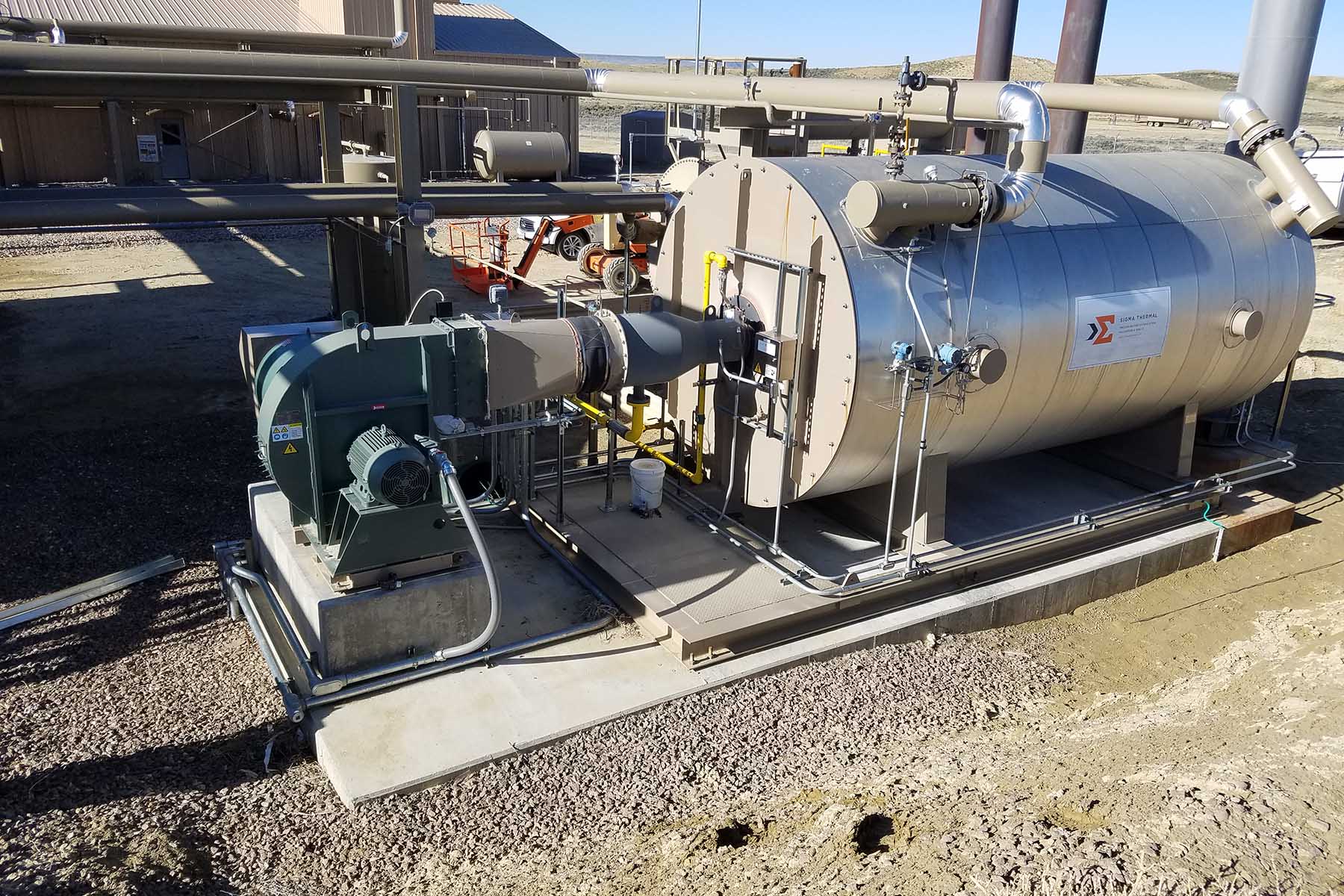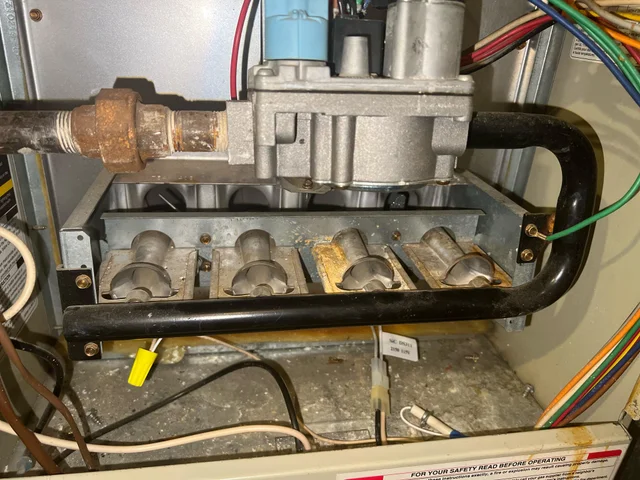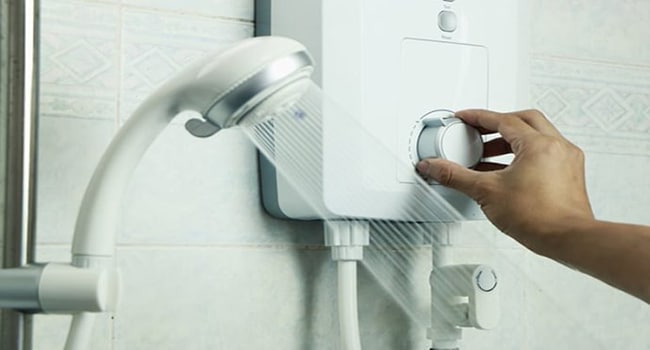Indirectly heated water heaters are widely embraced heating systems employed for the provision of hot water in residential and commercial settings. Diverging from direct heating units that use a flame to directly warm the water, indirect water heaters utilize a heat exchanger to convey heat from an external source like a boiler or solar panels. The utilization of this indirect approach presents a plethora of pros and cons that necessitate careful contemplation when selecting this particular water heating system.
So, here, we’ll discuss how an indirect water heater may benefit you and what could be its drawbacks. But first, let’s see what this system is about.
What is an indirect-fired water heater?
An indirect water heating system employs an external heat source to indirectly warm the water, distinguishing it from direct water heaters that have a burner or heating element in direct contact with the water. Indirect water heaters utilize a distinct heat exchanger to facilitate the transfer of heat to the water.
- How does it work?
Basically, it operates on the fundamental concept of harnessing a primary heating source, such as a boiler or furnace, to produce hot water or steam. The primary heating device warms up a fluid, typically water or a heat-conductive substance like glycol, in a closed-loop system. Subsequently, this heated fluid flows through a coil or heat exchanger located within the indirect fired water heater, imparting its thermal energy to the water confined in a separate storage tank.
It’s mainly useful because an indirect fired water heater has the ability to provide a reliable and efficient supply of hot water without directly exposing the water to the heat source. This eradicates any potential danger of combustion byproducts, like carbon monoxide, mingling with the water, thus ensuring a safer alternative. Moreover, it grants better temperature regulation and ensures a consistent provision of hot water.
- Where are they used?
Indirectly heated water heaters find wide usage in residential, commercial, and industrial settings with an established boiler or heating system. They are frequently incorporated into existing heating systems to harness surplus heat produced by the main heat supplier, thereby optimizing energy efficiency.
Advantages of Indirect Fired Water Heaters:
- Energy Efficiency:
Indirectly heated water heaters are renowned for their remarkable energy efficiency. Through the use of an independent heat source, like a boiler with high efficiency, they optimize energy utilization, leading to reduced operational expenses. The heat exchanger’s design guarantees minimal heat dissipation throughout the heat transfer process, thereby enhancing the efficiency of the entire system.
- Versatility:
The versatility of indirect water heaters is a significant benefit. These water heaters have the capability to be combined with different heat sources, such as natural gas, propane, oil-fired boilers, or renewable energy systems like solar thermal panels. This adaptable feature enables individuals and enterprises to select the most appropriate heat source according to their requirements, local availability, and environmental factors.
- Minimized Upkeep:
When it comes to maintenance, indirect fired water heaters generally demand less attention in contrast to their direct fired counterparts. By isolating the heating process from the water storage through a heat exchanger, the water tank remains shielded from direct exposure to the flame or byproducts of combustion. This effectively decreases the likelihood of corrosion and the accumulation of minerals, thereby prolonging the lifespan of the water heater and diminishing the need for regular maintenance.
- Enhanced Safety:
One of the notable benefits provided by these water heaters is the heightened level of safety they provide. As the combustion process occurs outside the water storage tank, there is no direct exposure to flames or combustion gasses. This eradicates the potential hazard of flammable vapors igniting, resulting in an enhanced level of safety for both residential and commercial purposes.
Disadvantages of Indirect Fired Water Heaters:
- Initial Cost:
One of the main drawbacks of indirect fired water heaters is their relatively higher upfront expense when contrasted with direct fired counterparts. The additional parts, including the heat exchanger and related plumbing, increase the initial investment required for installation. However, it’s important to consider the long-term cost savings in terms of energy efficiency and reduced maintenance.
- Heat Transfer Efficiency:
While indirect fired water heaters typically demonstrate efficiency, the rate of heat transfer can be comparatively slower in contrast to direct fired systems. Initially, the heat needs to be generated from an external source and subsequently conveyed through the heat exchanger to the water storage tank. This little bit of a delay can lead to a slightly prolonged waiting period for hot water, particularly in instances where instantaneous hot water is preferred.
- Space Requirements:
Another drawback of indirect fired water heaters is their space requirements. As they consist of two separate components—a water heater and a boiler or furnace—they occupy more space than standalone water heating systems. This can present a predicament, particularly in locations with restricted space. The requirement for additional room to house both the water heater and the heating unit can create complications during the installation process, especially in compact residences or commercial buildings. Therefore, proper planning and consideration of available space are crucial when opting for an indirect fired water heater.
- Reliance on External Heating Source:
Indirectly heated water heaters rely on an external heat source, commonly a boiler or furnace, to supply the required warmth. Although this dependency offers flexibility and compatibility with different heating systems, it also implies that any problems or failures in the heating unit can impact the availability of hot water. In case of a malfunction or repair requirement in the boiler or furnace, the provision of hot water can be disrupted until the matter is addressed.
Final Thoughts:
Indirectly heated water heaters present numerous benefits, encompassing energy efficiency, flexibility in heat source alternatives, decreased maintenance needs, and improved safety measures. Despite potentially higher upfront expenses and a slower heat transfer procedure in contrast to directly heated models, the long-lasting advantages often overshadow these drawbacks.
However, before selecting the optimal water heating system, it is crucial to evaluate specific needs and take into account factors like budget constraints, energy efficiency objectives, and available space which helps you make the best decision for fulfilling your hot water needs.



